
The Business of Fashion
Agenda-setting intelligence, analysis and advice for the global fashion community.

Agenda-setting intelligence, analysis and advice for the global fashion community.
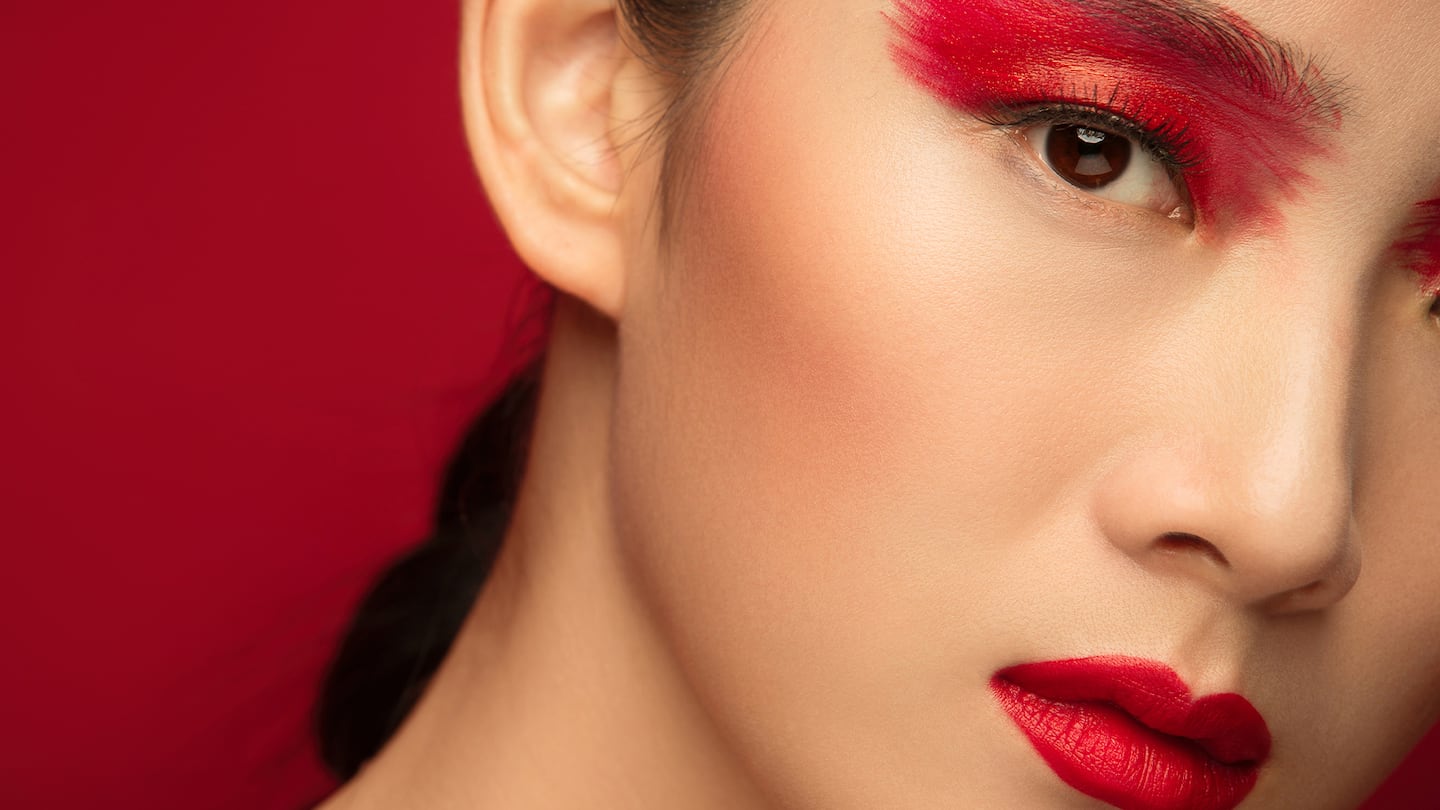
Before Shanghai entered its now-easing lockdown, 26-year-old Chen Xi was a self-confessed beauty addict.
The e-commerce coordinator regularly patronised international and homegrown brands like Tom Ford, Skinceuticals and Florasis, but she rarely shops for them now. After being homebound for months, her beauty spending has dwindled and she’s no longer scrolling through social commerce app Xiaohongshu to find the perfect shades and formulas.
“I’m still trying to buy moisturiser and my favourite serums, but it’s not so much about discovering cool brands and products as it is making sure I don’t run out [of essentials],” she said. “I know people who have been getting done up to sit at home on their video meetings, but it feels pointless to me.”
Across China, people like Chen are shopping less due to factors both within and outside of their control. On top of lingering Covid-19 measures which negatively impacted consumer sentiment and forced many physical retailers to shut for months, supply chain troubles are now making it difficult to receive e-commerce orders. Even if a shopper is living in a city with fewer restrictions, shipments are often disrupted or severely delayed.
ADVERTISEMENT
“Someone on my team in Suzhou last week got a delivery for something she ordered in early April,” said Elisa Harca, co-founder and Asia chief executive of Shanghai-based digital marketing agency Red Ant.
It’s no surprise that brands are feeling the pinch. Early this month, Estée Lauder Companies halved its full-year profit forecast on the back of its exit from Russia and Chinese lockdowns. Meanwhile, Shiseido’s Q1 sales in China, its second-biggest market after Japan, dropped 21 percent year-on-year due largely to low store traffic. Even local favourites aren’t doing so well.
In recent months, Chinese media have been teeming with articles about the direct-to-consumer cosmetics darling Perfect Diary, whose parent company Yatsen Holdings suffered losses of 1.62 billion yuan ($243 million) for its 2021 fiscal year and 291.4 million yuan in Q1 2022. Yatsen’s colour cosmetics division saw sales drop 45.6 percent in the first quarter.
But as the authorities work to reopen cities like Shanghai, most beauty companies seem to expect a rebound in Chinese consumer sentiment. Many frame the recent downturn as a blip and see China not only as one of the world’s most important beauty markets today but also a relatively stable place to keep investing to capture future growth.
Forecasts from Euromonitor International support their confident stance. The retail value of China’s beauty and personal care market surpassed pre-pandemic levels as early as 2020. The market is predicted to achieve a compound annual growth rate of 6 percent between 2021 and 2024, increasing from $88.8 billion to $106 billion over the period. This year is also expected to register a year-on-year rise despite current market headwinds.
Not all beauty players will enjoy the upward trajectory. Some will see significantly weaker performance than average and even those that outperform will need to brace themselves for a rebound that looks different to the one experienced in 2020 while planning for longer-term shifts in the market.
Beauty brands are facing several long- and short-term obstacles in China, depending on their physical retail footprint, product category exposure and prowess in digital channels and supply chain management. A V-shaped recovery may not be on the cards this time.
For starters, Shanghai and Beijing — where most beauty brands and retailers have focused their investment — carry far more economic weight than China’s other large cities, noted Patrice Nordey, managing partner of Fabernovel Asia. In recent years, brands and retailers from Shiseido to Tmall have cemented Shanghai as a hotspot for the beauty industry; LVMH announced last year that it would be home to a $154 million beauty e-commerce hub.
ADVERTISEMENT
This suggests recent lockdowns in those cities could have had a more severe impact on the national economy than those in cities like Wuhan two years earlier. Moreover, e-commerce and logistics generally ran smoothly in 2020 after physical stores closed, while non-essential deliveries largely halted in Shanghai since the city-wide lockdown was officially imposed in April.
Given these and other factors, it’s no surprise that global players are focused on long-term strategies to spur growth and innovation.
In May, L’Oréal established its own investment company in China, Shanghai Meicifang Investment Co, which will target the beauty tech category as well as companies in marketing, R&D, data, supply chain and packaging. In the same month, Shiseido officially registered its own beauty investment fund for the Chinese market, Xiamen Ziyue Equity Investment Partnership.
Not only could these moves foster local beauty tech start-ups and brands, but they also could help strengthen the beauty giants’ digital capabilities globally and tap into C-beauty’s international sales potential. “If these big groups create the funds, they can help [homegrown] brands polish what they’re doing so they’re fit for long-term success,” said Harca.
For global players competing with C-beauty upstarts, knowing their strengths and weaknesses will be even more important as local demand strengthens. As Nordey notes, C-beauty brands excel at the “downstream of the overall beauty value chain”: areas like distribution, packaging and brand visuals, while larger global firms in particular lead in product innovation, giving them the upper hand when it comes to categories like active cosmetics, premium skin care and hair care.
Also worth watching is whether local frustrations over Beijing’s ‘zero-Covid’ stance could dent the patriotism that helped fuel C-beauty’s growth to begin with. “The China pride we’ve been feeling for years … there’s definitely a cooling off, but it’s not felt across the whole country,” explained Harca, noting that Shanghai is where the attitude is most evident.
While some challenges in China’s beauty market have stemmed from or been exacerbated by zero-Covid restrictions, homegrown brands were already facing a set of challenges before recent lockdowns began.
As a shopper, Chen says that one of the main attractions of C-beauty brands is price. “With [global] brands, there’s a prestige factor, whereas buying [local] I’m going off the recommendations of key opinion customers’ (as micro-influencers are known in China) and they’re more affordable.” But this has made some local brands more vulnerable to dips in demand.
ADVERTISEMENT
Harca likens the current climate as a coming of age for C-beauty brands, many of which appeal to the mass market. “What they’ve done is go for speed, but they haven’t spent time on the longer-form product [and] brand building side of things.”
Nordey draws a comparison between the trajectories of C-beauty brands like Perfect Diary and Glossier’s, which he says are shaped by a ‘growth at all costs’ strategy, low profitability model and venture capital funding.
This helped many C-beauty brands establish themselves quickly and compete against incumbents, but also rendered them “hyper-sensitive to consumption inflections and media cost inflation,” said Nordey. Perfect Diary, for one, spends around 65 percent to 72 percent of its total expenses on marketing. The company did not respond to a request for comment.
However, within the direct-to-consumer cohort, not all players are facing the same struggles. Many C-beauty players have built their brands with a focus on makeup (take Florasis, Girlcult, Hedone and Rainology) and the mainland customer. But those with larger portfolios and multi-category scopes have been more insulated, while colour cosmetics and personal fragrances are taking a bigger hit with social distancing in place, Nordey noted.
Yet Harca is optimistic that best-in-class C-beauty players can overcome some of the more immediate obstacles they face, given their data-driven, quick-pivoting business models. “It’s more about them taking the time to finesse what brand storytelling means for them. If they can understand it, they’ll maintain their drive within the market and build into consumers’ hearts.”
It’s important to note that the global market remains untapped for most C-beauty players as the category has a long way to go in the US and Europe, where K-beauty and J-beauty are already relatively well known.
Interestingly, both global expansion and branding upgrades are opportunities that international players like L’Oréal and Shiseido can help local brands tap once they start investing in them.
Though it will be a bumpy road ahead for some players, Harca believes that the overall short-term outlook for the China market is one where it bounces back soon after the current malaise dissipates. Revenge spending is on the cards for at least some shoppers, and brands who are ready for it, and make use of their time now to build stronger relationships with customers, will eventually reap the rewards.
THE LATEST NEWS FROM CHINA
时尚与美容
FASHION & BEAUTY
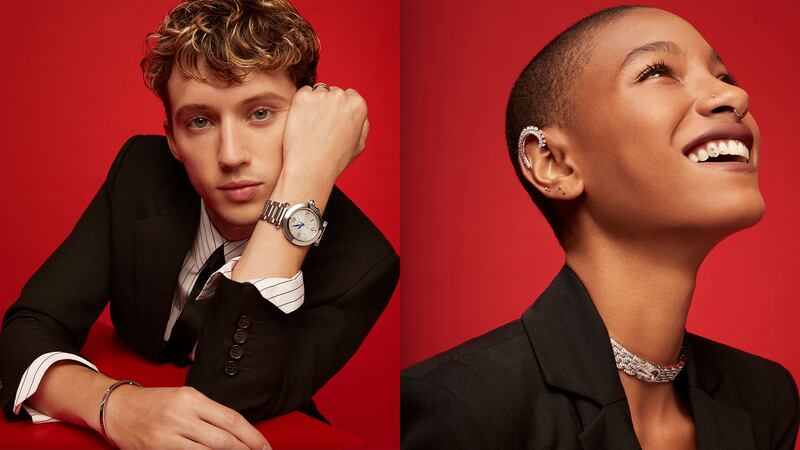
Richemont: China Demand Won’t Recover as Quickly as Expected
The Swiss luxury group isn’t quite as optimistic as its competitors when it comes to a rebound in luxury’s largest market. Richemont shares declined 12 percent on May 20, the most in over two years after the group’s chairman Johann Rupert predicted Chinese demand will be slower to recover than expected. Around 40 percent of the group’s stores in China are closed right now. “Even if the worst of Covid is hopefully behind us, we face a global environment which is the most unsettled we have experienced for a number of years,” said Rupert, adding that investors shouldn’t expect a triple-digit rebound in the market, which he thinks will take more time than the US’ more recent rally. “We face volatile times ahead.” (Bloomberg)
Chanel Profit Almost Triples Despite Chinese Lockdowns
The luxury house reported 2021 revenues that surged 50 percent year-on-year to $15.6 billion, marking a 23 percent gain on 2019′s pre-pandemic performance. Chanel’s operating profit almost tripled, growing 170 percent to reach $5.5 billion. The brand remains “confident in being able to deliver a solid performance and healthy growth this year,” said chief financial officer Philippe Blondiaux, despite headwinds including coronavirus lockdowns in China, Russia’s invasion of Ukraine and soaring inflation. Around a third of Chanel’s 16 fashion boutiques and approximately 100 beauty stores in China have shut amid local lockdowns, which have resulted in a revenue decline of more than 10 percent in April, according to Blondiaux. However, this dent was counteracted by “double-digit growth” during the month in markets like the US, South Korea, Taiwan, Singapore and Thailand. (Financial Times)
Louis Vuitton Denies Counterfeit Sales Allegations
The French brand refuted an allegation that it sold a fake bag to a customer in a Changsha boutique. Online legal records published last week detailed an order, issued by a local court in the capital of China’s Hunan province, requiring Louis Vuitton to compensate the claimant for a counterfeit handbag the latter allegedly purchased from Changsha’s IFS mall and attempted to refund months later, Women’s Wear Daily reported. The court ordered the brand to pay for not only the price of the bag, but triple its value in damages. When BoF contacted representatives of the luxury brand for a response, a spokesperson reiterated that “Louis Vuitton strongly denies the claim by the plaintiff and will file an application for re-trial of the case to claim redress of the original judgment…[as Louis Vuitton]… only sells genuine products in all of its stores worldwide which are all directly operated.” They went on to say that the company “fully respects the Chinese Court however Louis Vuitton assures in the entire proceeding that the bag the plaintiff purchased and the one brought back nine months later for refund was not the same.” (Louis Vuitton)
科技与供应链
TECH & SUPPLY CHAIN
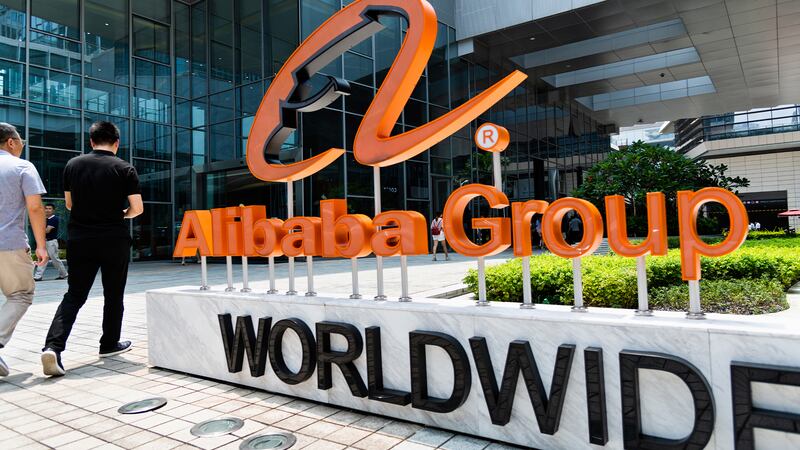
Alibaba Earnings Beat Estimates
The Hong Kong-listed e-commerce giant’s shares rose 15 percent after it reported revenue growth of 9 percent for Q1 2022 from the previous year. Annual active shoppers across Alibaba platforms hit 1 billion consumers in China for the first time. The results were stronger than analysts forecasted, though the group saw its quarterly revenue growth fall to its slowest since it went public in 2014. Alibaba declined to provide a forecast for its fiscal year due to risks associated with Covid-19 and Beijing’s zero-Covid policy, which it said was deterring merchants from shipping goods beyond everyday essentials. Though delivery services have resumed, they have yet to fully recover from nationwide disruptions and logjams. (Reuters)
China’s Easing of Its Tech Crackdown May Only Be Temporarily
On May 17, officials met with some of China’s top tech executives, further signalling the easing of the regulatory scrutiny that has put pressure on the once fast-growing sector since late 2020. The country’s Vice Premier Liu He pledged support to tech firms and platform companies soon after. But top analysts don’t see this as a major reversal of Beijing’s crackdown; rather, Trivium tech analyst Linghao Bao expects firms to see a grace period for around six months, followed by a continued commitment to regulatory action, aimed at fostering competition in and increasing state control of a space dominated by behemoths like e-commerce giant Alibaba and WeChat owner Tencent. Last week’s meeting follows statements made in April by the Politburo, where the decision-making body pledged support for the “healthy” development of a digital platform economy. (CNBC)
Layoffs Continue as Tencent Fights Disappointing Financial Results
The WeChat owner and gaming firm is going through another round of layoffs, in a continuation of efforts it began in late 2021 to cut down its workforce. The move comes amid disappointing financial results, with sources interviewed by local outlets like Caijing citing attempts at decreasing costs, and ongoing regulatory pressures, which have been especially tough on the gaming space, one of the Hong Kong-listed company’s top revenue streams. The layoffs have been particularly hard on Tencent’s gaming departments, where reportedly 10 percent of the unit was let go. Co-founder and CEO Pony Ma recently shared a viral opinion piece on his WeChat feed that laid bare the price of Beijing’s zero-Covid measures. The firm is not the only tech player bidding goodbye to staff: Peers including Didi and Alibaba have also made significant cuts to their workforce in the last couple of months. (Technode)
消费与零售
CONSUMER & RETAIL
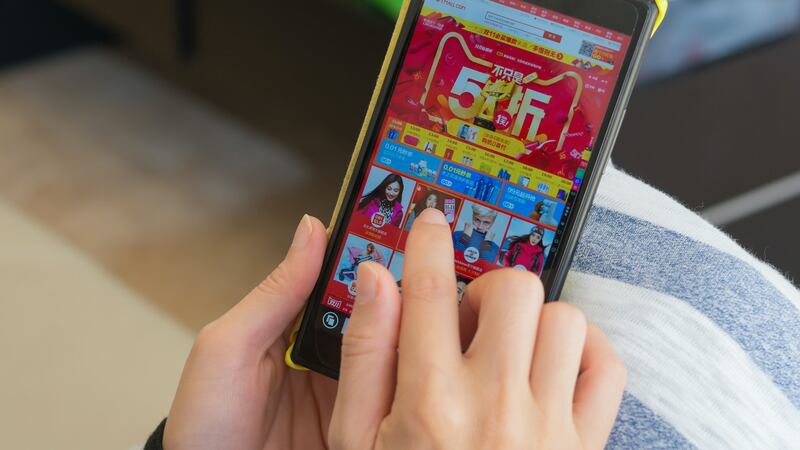
Taobao Launches ‘Metaverse Mall’
In preparation of China’s annual 618 Shopping Festival, Alibaba’s Taobao has been tasked to create a virtual shopping venue open to its customers. The project will offer shoppers a chance to immerse themselves in shopping scenarios web3 has to offer. The metaverse mall will add to the company’s activations which so far include VR Shopping Buy+ programme and TaoBao Life’s virtual avatars. (Jing Daily)
The Newest ‘Fashion Sport’ on Xiaohongshu: Ultimate Frisbee
The game was first developed by American students in 1968 but is seeing an unexpected revival in China, particularly on social media apps like Xiaohongshu. Long-time player Zhang Kun began seeing an “explosion” of interest of the game, literally translated in Chinese to jixian feipan, late last year. Now, hundreds are signing up for weekly pickup games in far-flung districts of cities like Beijing. “Many years ago, when I played Frisbee, people thought it was strange,” said Zhang. “This year, if you don’t play frisbee, you’re the one that’s a little strange.” The topic has drawn over 42.4 million views on Xiaohongshu, where it is tagged on posts featuring photogenic KOLs in fashion-forward activewear. Users are searching questions like “What should I wear when I play frisbee,” according to an app representative; photographer Dong Da observed brands and advertisers getting involved in early 2021, and has since organised a match for Puma. (SupChina)
Amid Lockdowns, Uniqlo, Zara See Online Sales Plunge
Global fast fashion and high street players aren’t seeing the e-commerce surge they enjoyed in China after the first outbreak of Covid-19, thanks to dampened consumer sentiment and logistical disruptions amid local lockdowns. According to market research firm YipitData, Uniqlo’s gross merchandise value on Alibaba-owned marketplace Tmall was down 33 percent in April from the same period last year, while Inditex’s Zara saw GMV drop 56 percent. They join a growing number of brands, in categories from beauty to electronics, in seeing a sharp drop in online sales as warehouses close and delivery routes remain backlogged. (SCMP)
政治,经济与社会
POLITICS, ECONOMY, SOCIETY
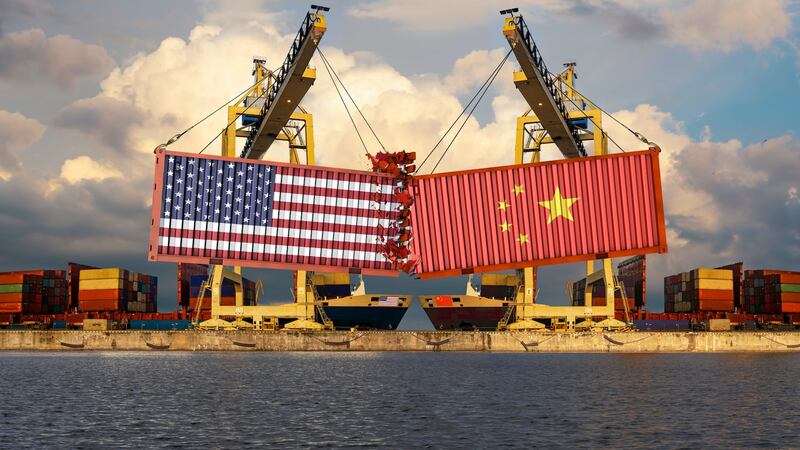
Chinese Officials Attend Emergency Meeting to Revive Economy
The country’s cabinet called an emergency teleconference on May 20, where officials across provincial, city and council levels urged authorities to take action to stabilise China’s economy. Premier Li Keqiang stressed the urgent need to reduce unemployment, up industrial production and mend supply chains as the economic impact of current measures surpasses those introduced after Covid-19′s initial outbreak in 2020. This comes after banks like UBS lowered their full-year GDP growth forecasts, citing Beijing’s strict zero-Covid measures, and a State Council executive meeting saw authorities unveil 33 new measures — from upping tax refunds and extending loans to small businesses — aimed at amping up growth. At the May 20 meeting, Li called on government departments to implement the measures by the end of May. (CNN)
Foreign Minister Tours the Pacific as China Pursues Regional Security Deal
China’s foreign minister Wang Yi on May 26 kicked off a 10-day tour of the Pacific nations, as concerns mount over Beijing’s ambitions in the region. In March, reports were leaked of a draft security agreement that would allow Chinese military and police access to Solomon Islands, catching Australia and New Zealand (the Solomons’ long-time security partners), other Pacific nations and the US, off guard. On the first day of Wang’s tour, a leaked draft revealed that Beijing was working to secure an extensive security deal with 10 countries that would expand its sphere of influence in the southern hemisphere — China is hoping that it will soon be signed by 10 Pacific countries in Fiji. Though Beijing has denied harbouring plans to set up a military base on the Solomons, Australia, New Zealand and the US have been vocal about their concerns over a greater Chinese presence in the Pacific. (The Guardian)
After ‘Lying Flat,’ Young Chinese Want to ‘Let It Rot’
The latest phrase to join the Chinese lexicon is bailan, which literally means ‘let it rot’, but is used more metaphorically when people want to give up on things that are too difficult to achieve. It has gone mainstream after being popularised by livestreamer Big Eggplant and Chinese gamers. The term conveys the same sentiments behind “Lying Flat,” with more cynicism thrown in — reflecting the malaise and uncertainty younger generations feel about everything from the property and job markets to making fulfilling relationships and finding good work-life balance. Though not a sentiment that’s unique to China, it’s no surprise that many commentators referencing it are living through lockdowns in cities like Shanghai. (Radii)
China Decoded wants to hear from you. Send tips, suggestions, complaints and compliments to robb.young@businessoffashion.com.
As interest in smaller international beauty brands intensifies among Chinese consumers, local investors are getting excited by the category. Here’s how to capitalise on the opportunity.
It was only a few years ago that Chinese beauty brands had trouble convincing consumers at home they were a viable alternative to global giants. Now, having won over their home country, these C-Beauty unicorns are now on the hunt for international sales.
Young consumers are driving spectacular growth in China’s fragrance sales, creating new opportunities in one of the few market segments where the country is not yet a dominant force.
With consumers tightening their belts in China, the battle between global fast fashion brands and local high street giants has intensified.
Investors are bracing for a steep slowdown in luxury sales when luxury companies report their first quarter results, reflecting lacklustre Chinese demand.
The French beauty giant’s two latest deals are part of a wider M&A push by global players to capture a larger slice of the China market, targeting buzzy high-end brands that offer products with distinctive Chinese elements.
Post-Covid spend by US tourists in Europe has surged past 2019 levels. Chinese travellers, by contrast, have largely favoured domestic and regional destinations like Hong Kong, Singapore and Japan.